Everything that we do is behavior. Even breathing – whether you are gulping air in a panic, or inhaling and exhaling in a relaxed yoga state – is a response to your environment and what’s going on in it. Before we do what we do there are antecedents – triggers and opportunities. After the behavior are consequences which determine what occurs next. Is what just happened rewarding or punishing? Do you do that behavior again? Or something else? (To understand the science of consequences read this insightful book, The Science of Consequences: How They Affect Genes, Change the Brain, And Impact Our World.)
As someone who does “positive reinforcement training” I’m most interested in the consequences that are rewarding. These are what drives an organism to repeat a behavior. “Clicker” trainers make use of this by marking a moment of behavior that they want with a clear signal, usually a distinct sound, and then providing a reward, which is usually food. This is quite effective in clearly defining a task and having the animal offer it again.
A hand target and a click followed by a cookie gave Sugar the information he needed to decide to walk over this pole. It also made him very, very enthusiastic about the work. Attention! Treats! Sugar was delighted.
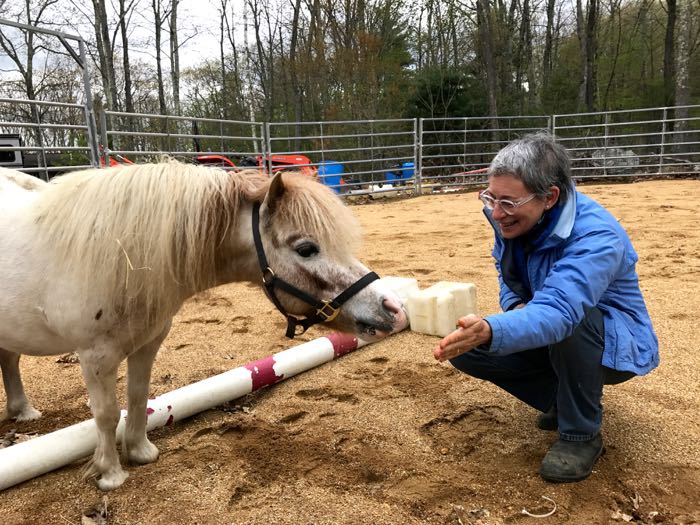
However, I gave the owner instructions not to use the clicker in anything other than a formal training session. Why? Because this pony needs to know when it’s game on, and when he can relax – and so that the owner can, too. If Sugar thought that at anytime during any interaction, that he could do something to get that click and treat, then this little mini would be more of a pest than he already is (a charming and rather polite pest, but still what you don’t want is an expectant pony in your face while you’re doing chores!)

So, I reserve the clicker for clearly defined training sessions, when I am teaching a behavior that I want to put onto cue, like teaching stay (I blogged about that here.) It’s very good for teaching horses to accept medical procedures. The clicker is a lot of fun for teaching tricks. I use it when under saddle when I’m teaching a new or improved movement.
Most of my clients who come to me for behavior issues want their horses to relax. Spooking, fear of the trailer, bolting, separation anxiety, all have at their roots a horse that is ill at ease. Before we can work on retraining the dangerous conduct, everyone needs to be able to breathe calmly. This is not a behavior that I want to put on cue, rather it’s what I want for my horses as a default. I once had a boyfriend who would yell at me, would you relax! Relaxation can be learned, but being told to do it when you’re tense is not particularly effective. That relationship didn’t last. The one that I’m in now has (it’s going on 25 years) and that’s partly because our interactions start from a calm place. That’s the same place that I want the horses to be at, and although I don’t use the clicker to achieve that, I do rely on the science of consequences.
Start looking at behavior from the perspective of what’s rewarding here? and you’ll find that there are a wealth of positive responses that you can provide to your horse to make them feel that the world is a wonderful place when they are with you, and that being cooperative and trusting is the way to go.
Speaking of trusting, I’m working with an aged gelding who has developed a dislike of interacting with people. He’s retired to ideal conditions – 24/7 turnout in a grass field with a herd of friends. His owner lives at a distance and visits every few weeks. The barn manager keeps a close eye on him, but mostly leaves him be.

Unfortunately, he’s needed some medicine, which he says taste yucky, and he’s had some pokes and prods which are uncomfortable. He’s decided that nothing good comes from being with humans. Even his own person, who he’s known for more than a decade, is someone to avoid.
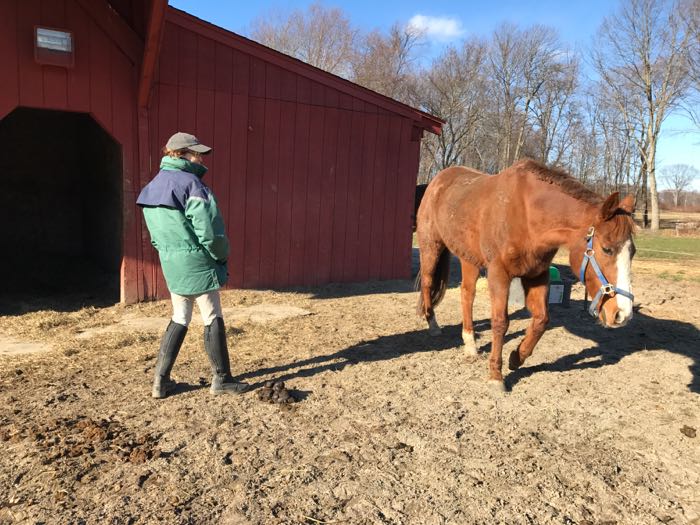
He’s not hungry – he’s on grass and free-choice hay. After one bite, he’ll walk away from treats. He says don’t even think of approaching him with brushes and a hoof pick, that even that is too much interaction for him. But it’s shedding season. He’s itchy. I gave him a carrot and I stroked him with a rubber mitt. That, he said, was nice. Very nice. I rubbed his forehead and walked away. He thought about it and came up to me. More please. Sometimes it’s best to let your horse ask for what they want.
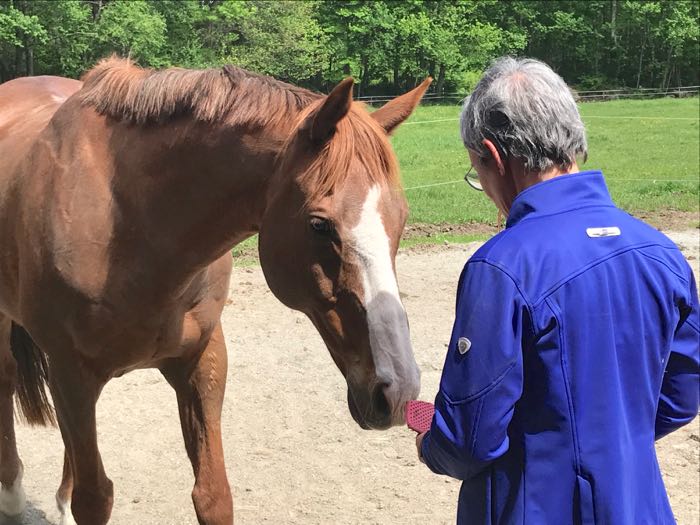
Trina knows what Cider likes. She leads him into the indoor. When he’s standing still and calm, she lets him off of the lead rope. Cider has become very good at still and calm.
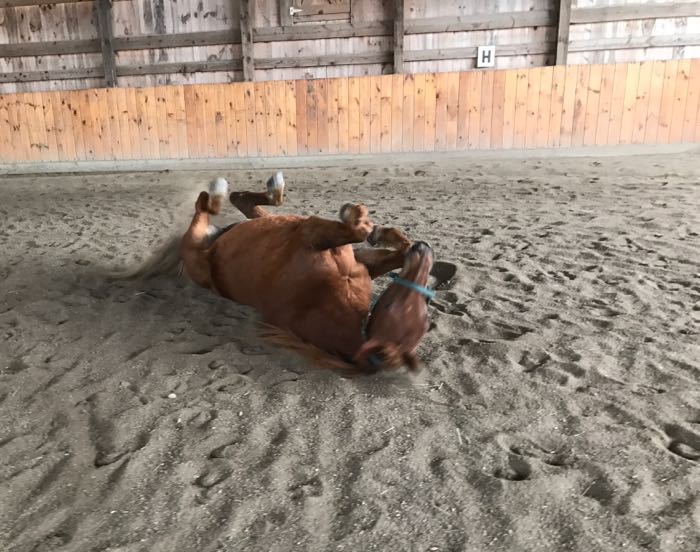
When this mare gets out of sight of her barn, she’s been known to bolt and high-tail it back home. But, she’s intelligent, curious, and her home paddock is rather boring. There are lots of opportunities for rewards in the woods, she just has to learn what they are and what to do to access them. She’s led down the path, and after a few calm steps, she’s given permission to browse. Then we move on. The woods become not something to rush through, but a place that’s interesting to explore.
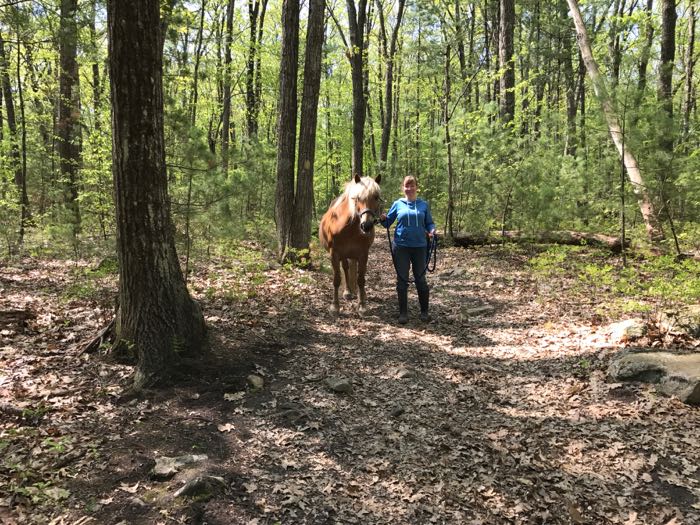
This horse has a learned to fear the truck and trailer. He’s asked to look at it from the safety of the barn.
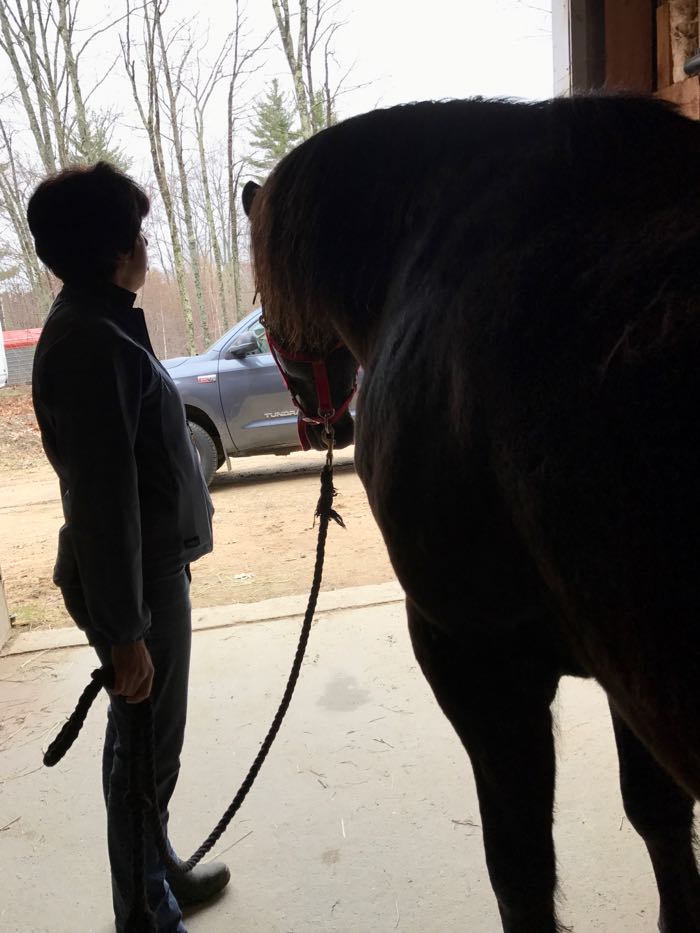
When he does, he gets his favorite under-chin scratches.
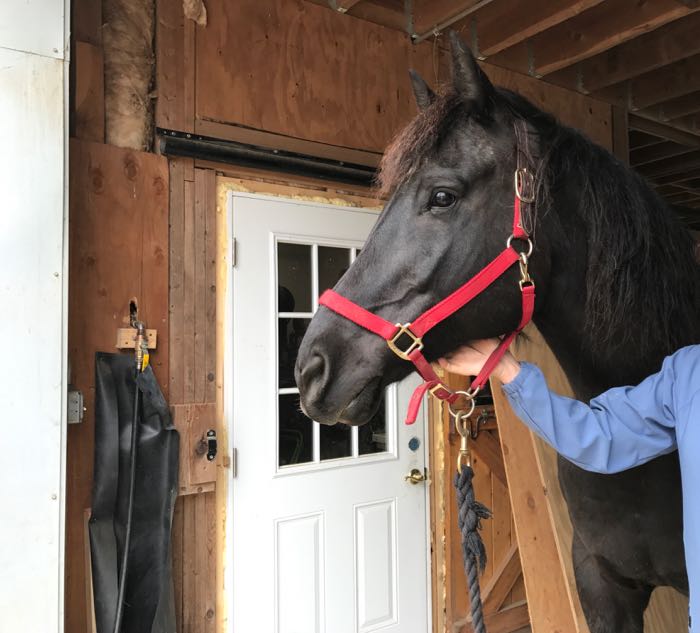
For some horses, movement is rewarding. Tonka enjoys a canter in the woods.
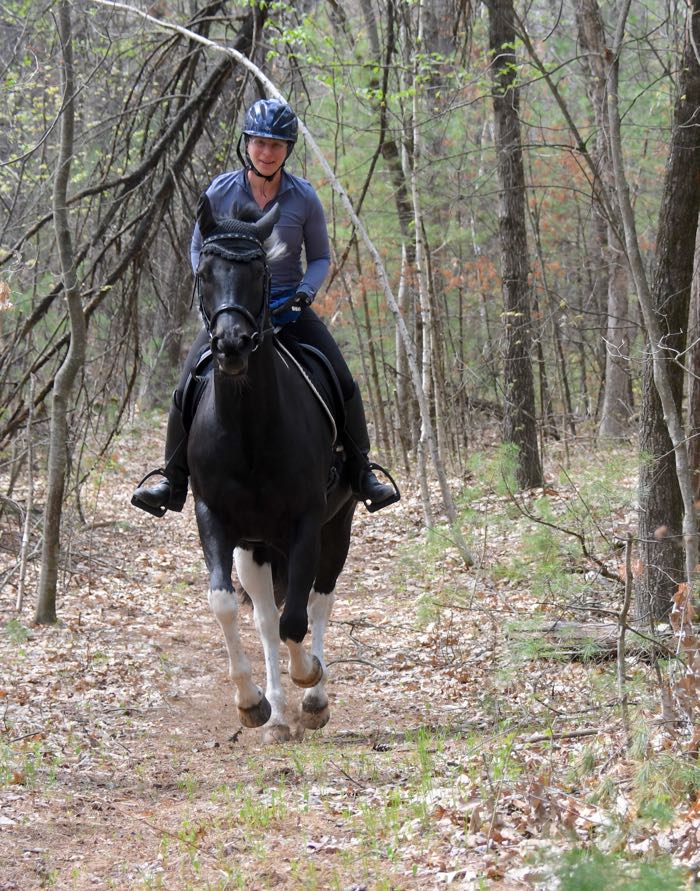
He only gets to do that if he starts from a calm place. Here I’m not even holding the reins.
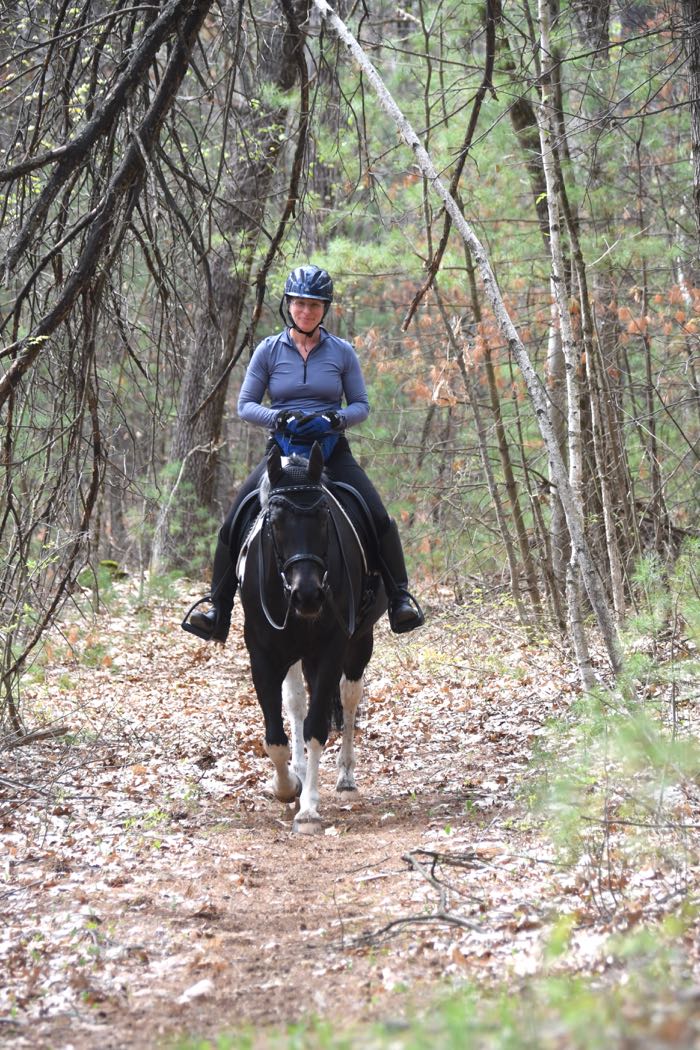
After cantering, Tonka returns to a relaxed walk. Neck scratches communicate my satisfaction with his attitude.
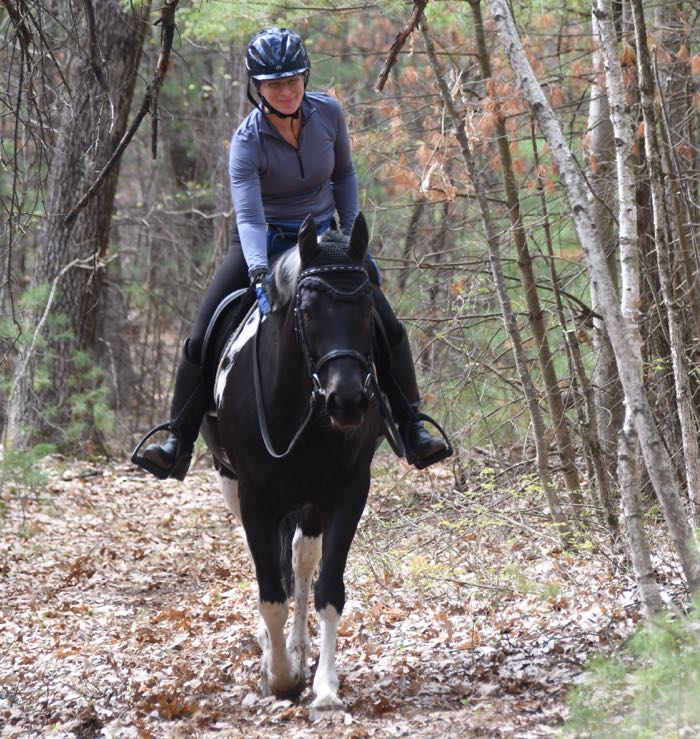
Scratches – in just the right place – when grooming, also confirm a trusting relationship,
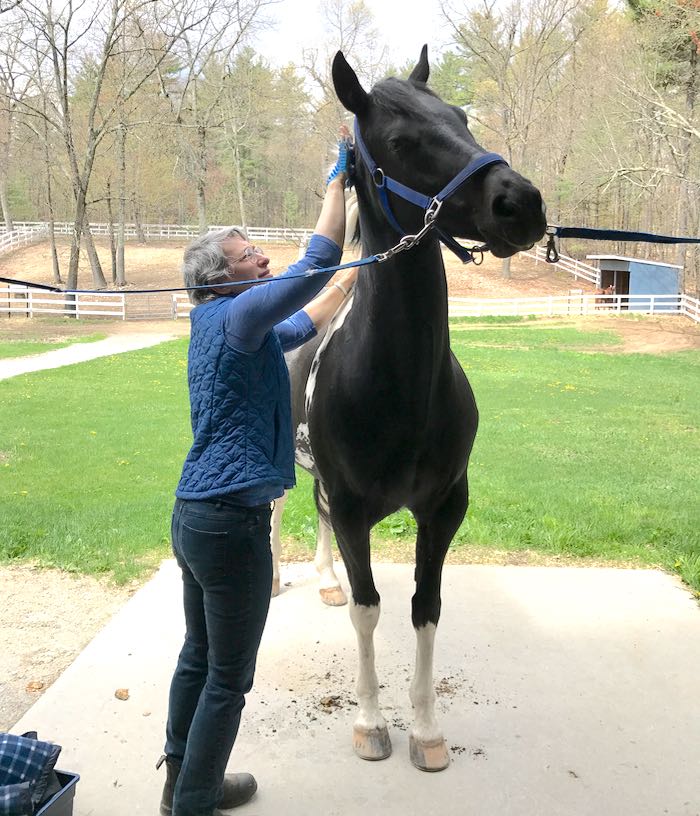 .
.
as does hanging out while your horse grazes. It doesn’t get any more rewarding than this for your horse. Or you.
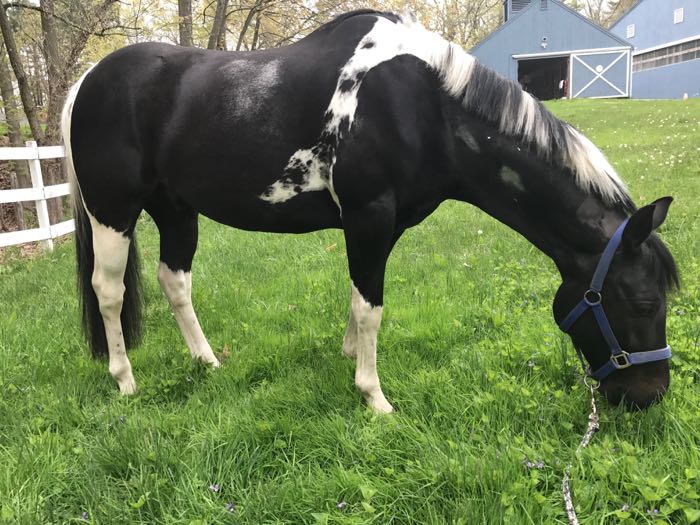
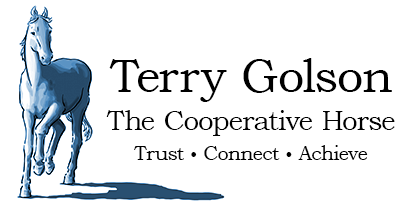

Lovely to read about and look at the photos. Thanks as always for including us all, Terry.
Lizzie
PS I had a good chuckle re Steve’s clicker-training…! ;D
Every action has a consequence, even in our interpersonal relationships. What we do is either rewarding or punishing. Why not be conscious of that and try to look for what you want and show your appreciation? 🙂
Great blog. Listening, understanding and knowing when to back off really does work with animals and humans, we have been married 49 years and still going strong!!…:)
Great advice, Jan!